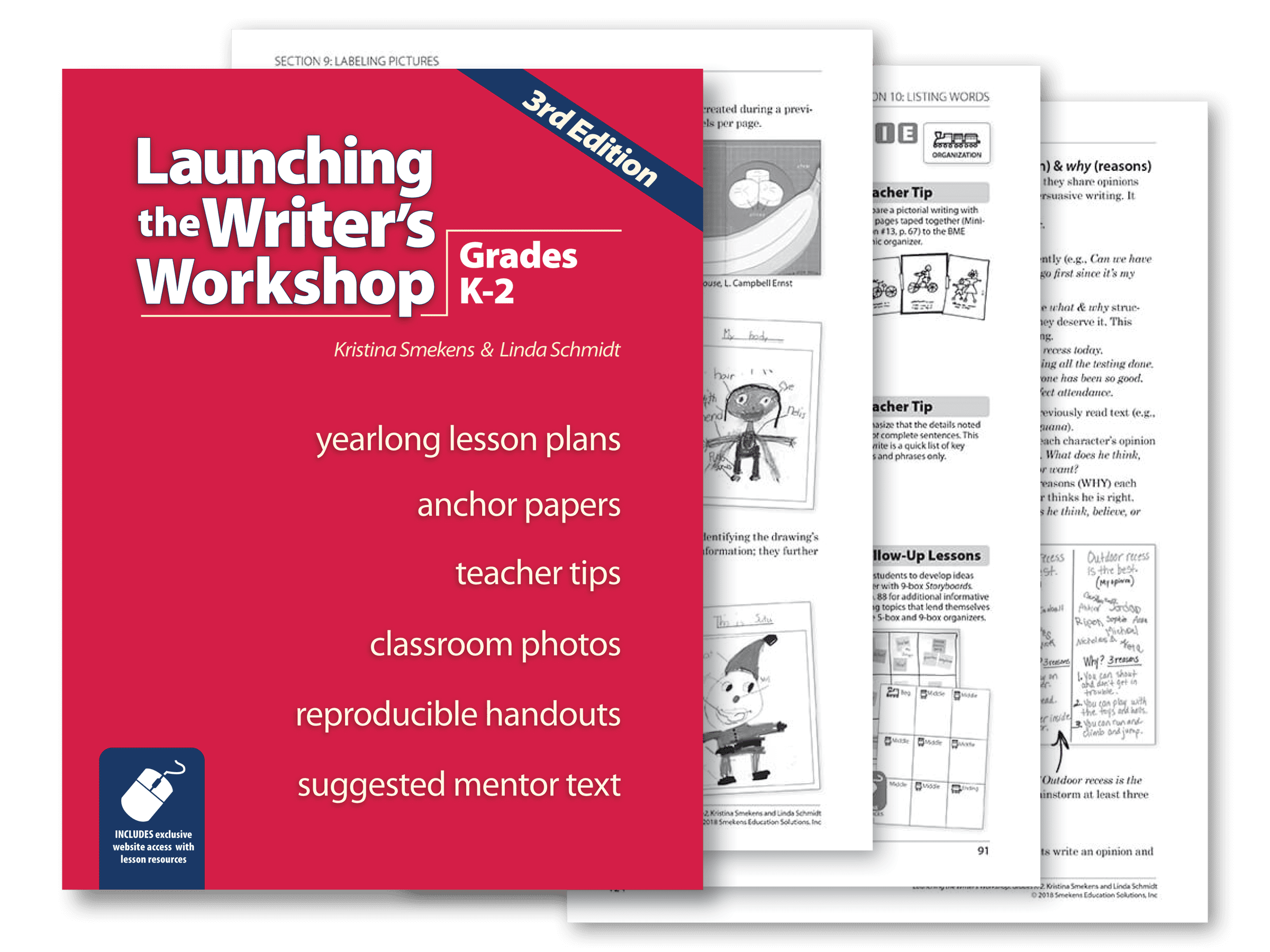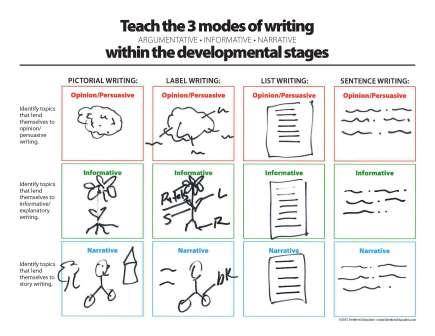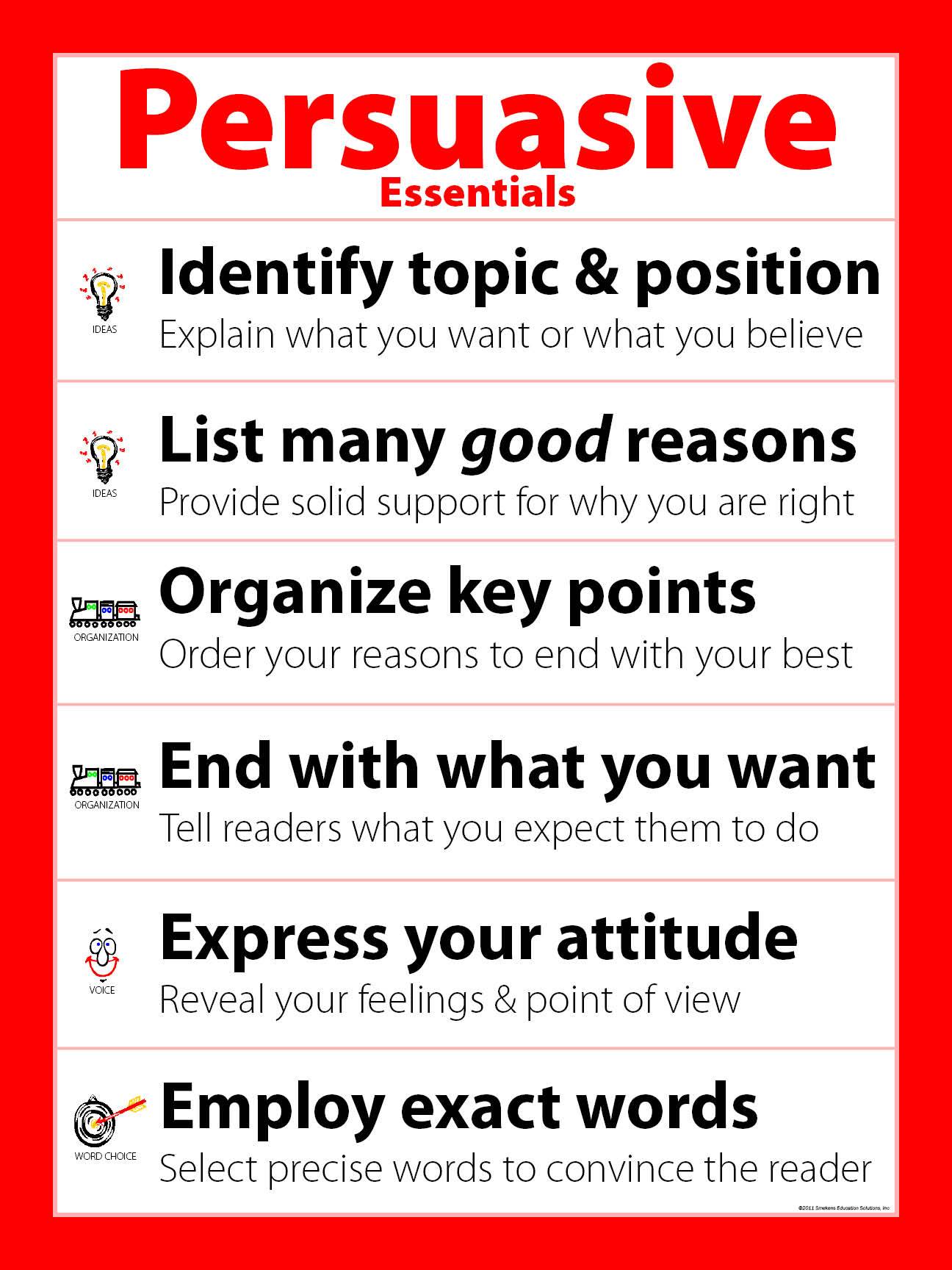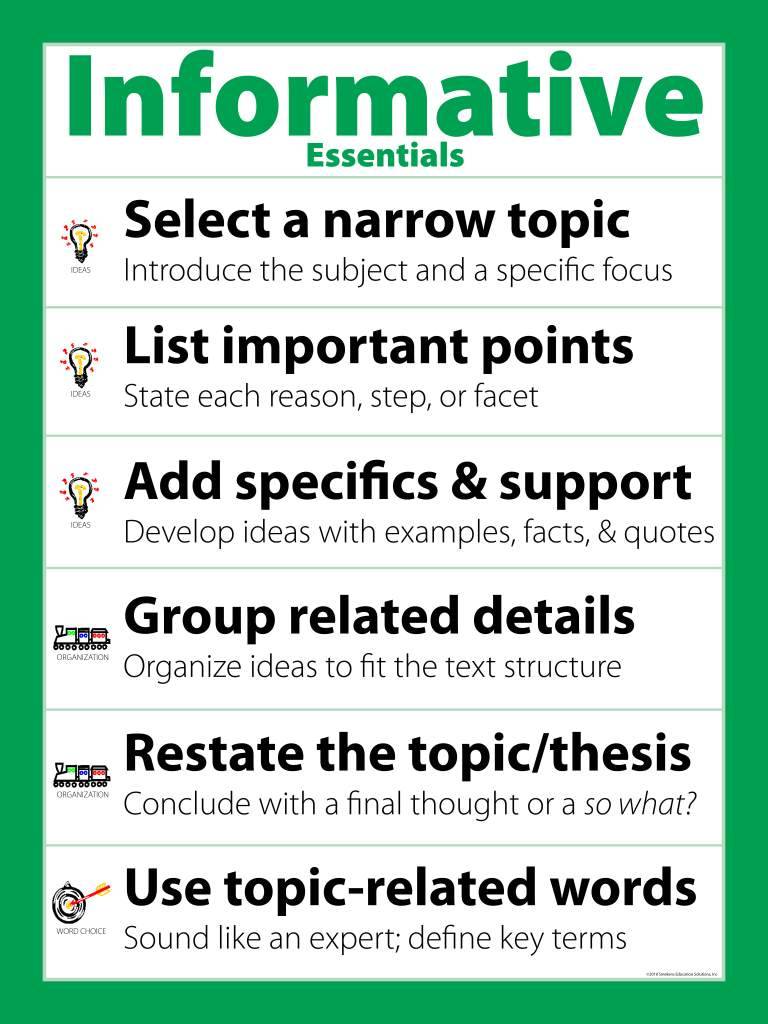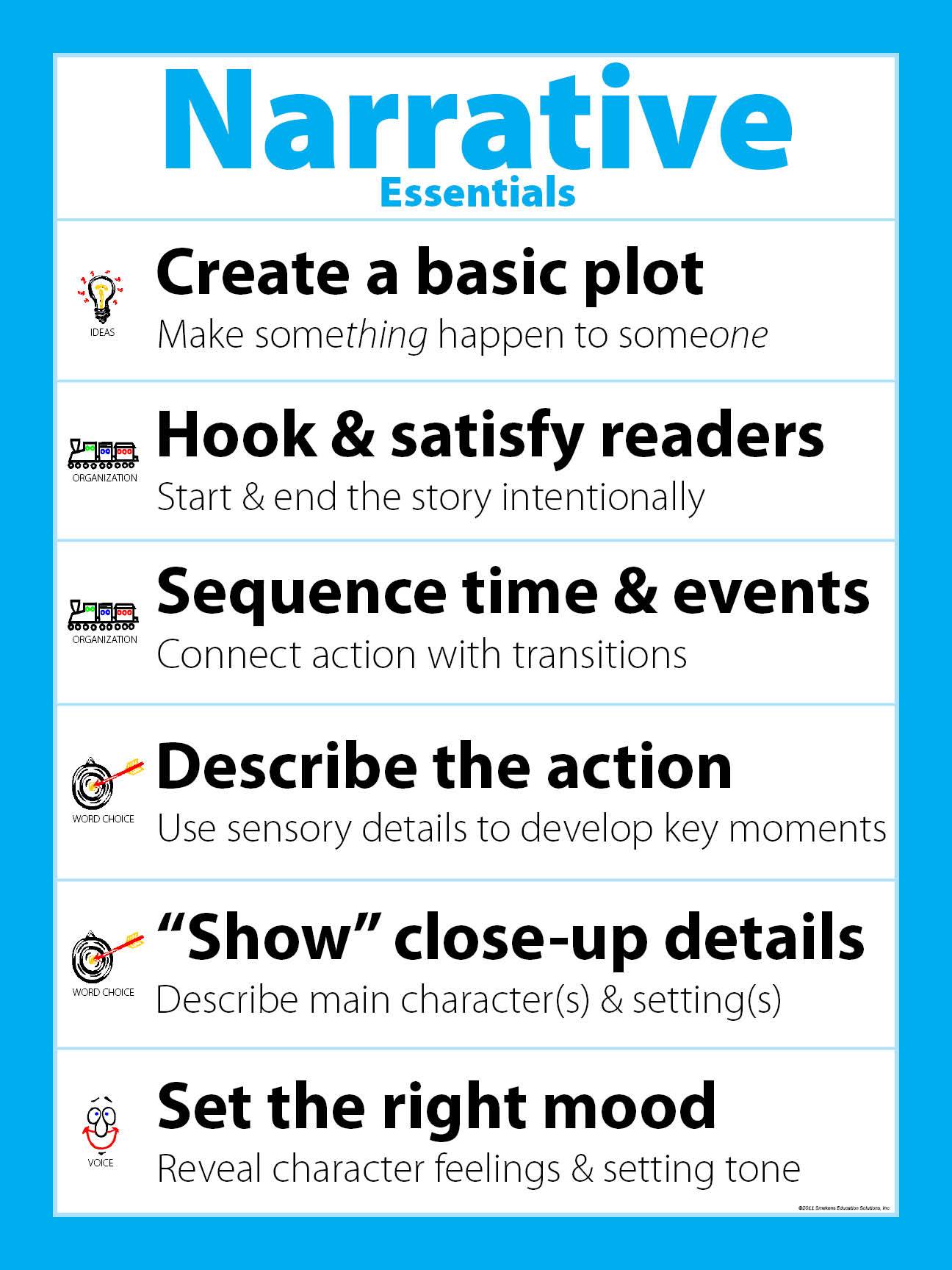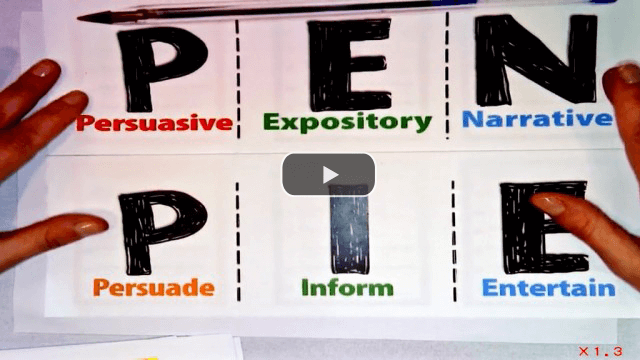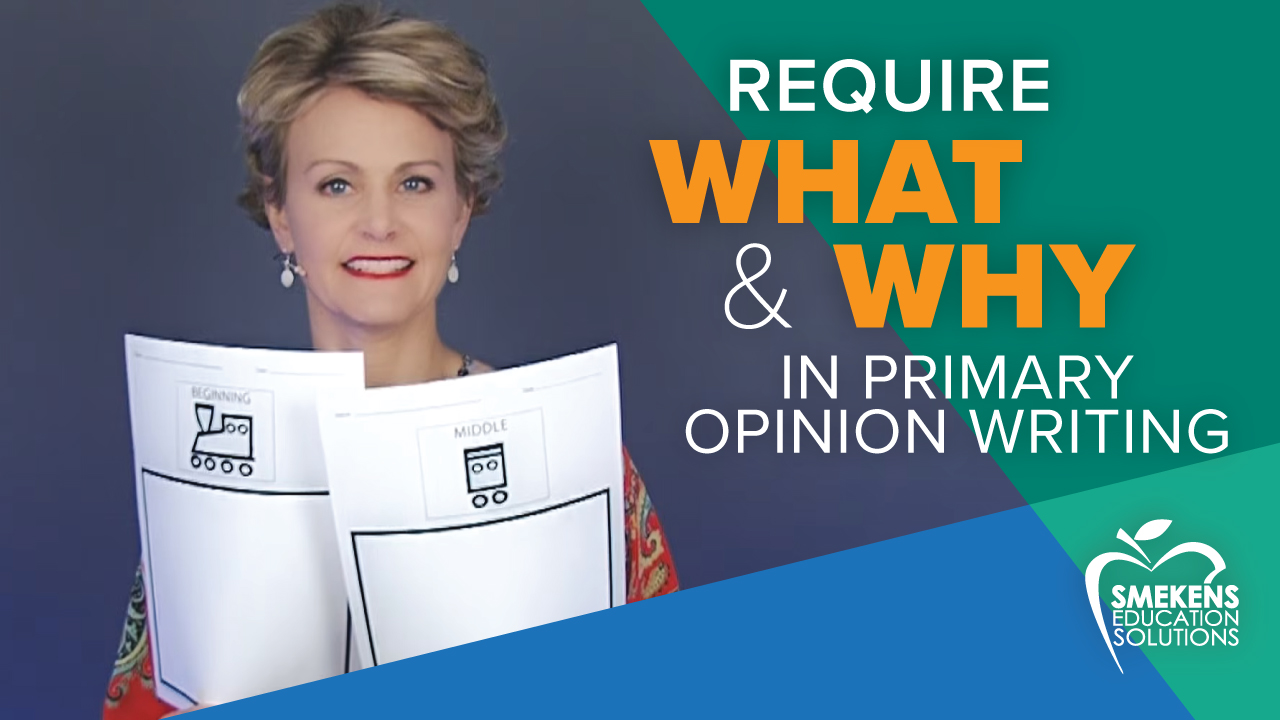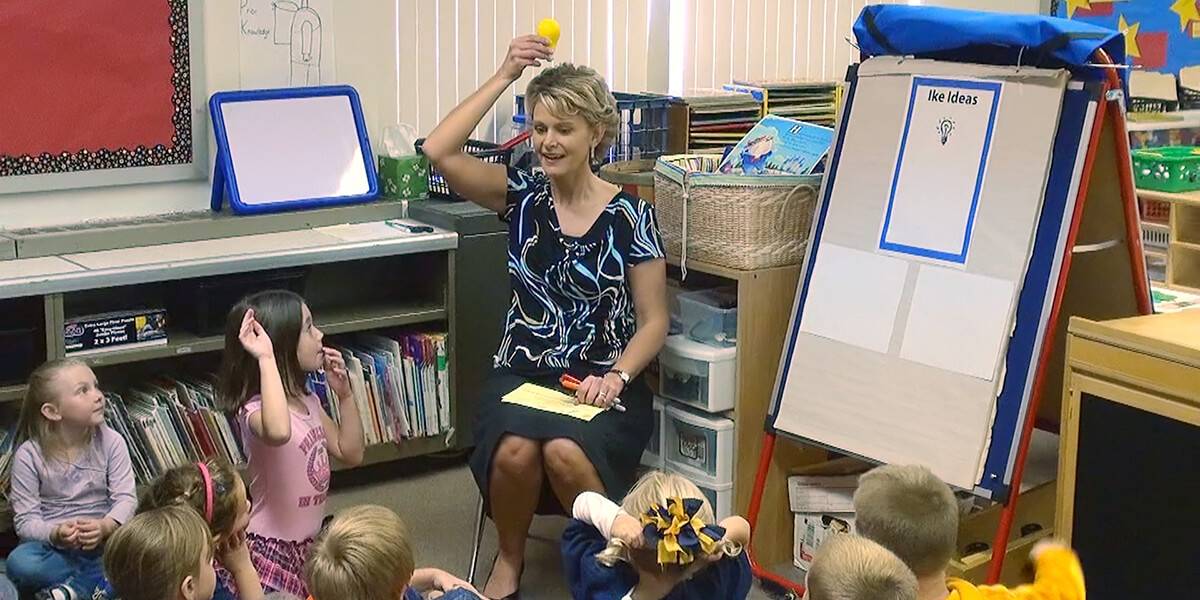Learning Center
writing
Incorporate persuasive, informative, & narrative writing in PK-1
april 18, 2017
The college and career-ready standards expect the three modes of writing to be taught at every grade level.
- The ARGUMENTATIVE standard requires students to share their opinions, persuade, and argue ideas.
- The INFORMATIVE writing standard asks students to write expository pieces that explain, inform, instruct, and even compare ideas.
- The NARRATIVE writing standard has students write entertaining stories to their audiences.
It’s easy to see how these three modes of writing fit into the middle school or high school classroom or even in the intermediate grade levels. But those teaching PK-1, ELL, and/or special education often wonder how they can tackle these standards when students are barely writing words.
Over the course of the year, students will progress from detailed picture-writing to adding labels around their pictures to detailed lists and then finally to detailed sentences. And each of these modes of writing can be easily addressed within the four developmental stages.
In Kristina Smekens’ book, Launching the Writer’s Workshop: Grades K-2, the pacing guide, and lessons are all organized by developmental writing stage AND labeled with the corresponding writing unit or purpose.
Opinion/Persuasive writing
Kids have lots of opinions–things they love and things they strongly dislike. Capitalize on their opinions with carefully chosen topics and provide ample opportunities for them to practice this mode. For example, you might assign them to “write” about their favorite toy. Sharing a “favorite” means sharing an opinion.
- They could communicate in the form of pictures with lots of close-up details about the toy.
- They could draw and then add letter or word labels around their detailed pictures.
- They could make lists of their favorite toys or what they want for Christmas.
- They could write several sentences about their favorite toy(s).
Informative writing
For expository and informative writing, consider topics that students are knowledgeable about. This will likely include content-area concepts you’ve been teaching in science and social studies. For example, you might assign them to “write” about the life cycle of a plant demonstrating what they know about plant parts and how they work.
- They could communicate in the form of pictures detailing the parts of a plant.
- They could draw and then add letter or word labels around their detailed pictures.
- They could make lists of a plant’s parts and/or its step-by-step life cycle.
- They could write several sentences about how plants grow.
Narrative writing
Topics for narrative writing can be as simple as asking students “What did you do this weekend?” Perhaps the child writes about going bike riding. He may have ridden his bike down to Grandma’s house or to a friend’s house.
- They could communicate about their weekend through pictorial writing.
- They could draw and then add letter or word labels around their detailed pictures.
- They could write a list of what they did this weekend, in order from beginning to end.
- They could write several sentences, creating a simple story all about their weekend.
Meeting the writing standards in PK-1 in any stage of writing is doable. Assess your writers to know what stage they are in—drawing, labeling, listing, or sentence writing. Then, select topics that lend themselves to the writing purpose or specific mode you want to teach.

